October 31, 2023 | Deborah Kotz
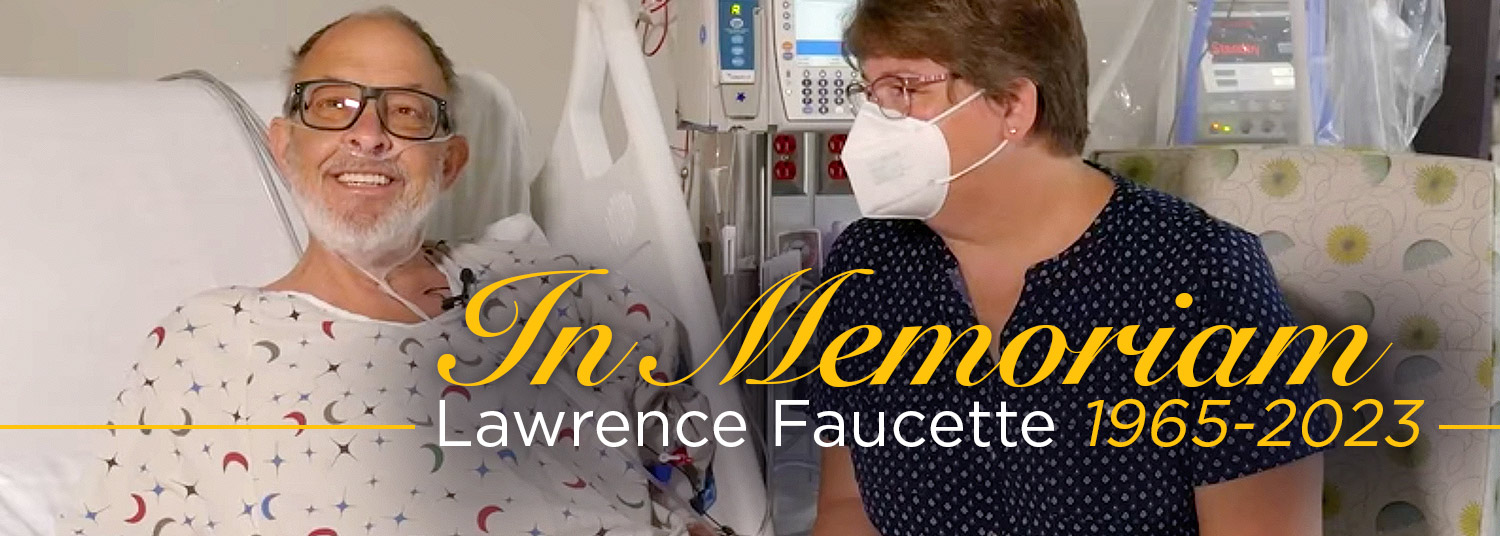
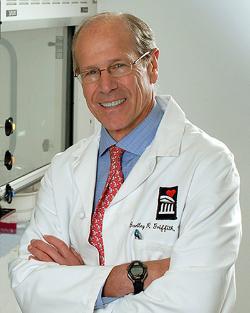 It is with great sadness that we announce the passing of Lawrence Faucette, the 58-year-old patient with terminal heart disease who received the world’s second genetically-modified pig heart transplant. Mr. Faucette received the transplant on September 20 and lived for nearly six weeks following the surgery.
It is with great sadness that we announce the passing of Lawrence Faucette, the 58-year-old patient with terminal heart disease who received the world’s second genetically-modified pig heart transplant. Mr. Faucette received the transplant on September 20 and lived for nearly six weeks following the surgery.
Mr. Faucette had made significant progress after his surgery, engaging in physical therapy, spending time with family members, and playing cards with his wife, Ann. In recent days, his heart began to show initial signs of rejection --the most significant challenge with traditional transplants involving human organs as well. Despite the medical team’s greatest efforts, Mr. Faucette ultimately succumbed on October 30.
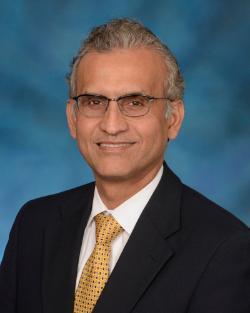 “We mourn the loss of Mr. Faucette, a remarkable patient, scientist, Navy veteran, and family man who just wanted a little more time to spend with his loving wife, sons, and family,” said Bartley P. Griffith, MD, who surgically transplanted the pig heart into the patient at the University of Maryland Medical Center (UMMC). Dr. Griffith is the Thomas E. and Alice Marie Hales Distinguished Professor in Transplant Surgery and Clinical Director of the Cardiac Xenotransplantation Program at the University of Maryland School of Medicine (UMSOM). “Mr. Faucette's last wish was for us to make the most of what we have learned from our experience, so others may be guaranteed a chance for a new heart when a human organ is unavailable. He then told the team of doctors and nurses who gathered around him that he loved us. We will miss him tremendously.”
“We mourn the loss of Mr. Faucette, a remarkable patient, scientist, Navy veteran, and family man who just wanted a little more time to spend with his loving wife, sons, and family,” said Bartley P. Griffith, MD, who surgically transplanted the pig heart into the patient at the University of Maryland Medical Center (UMMC). Dr. Griffith is the Thomas E. and Alice Marie Hales Distinguished Professor in Transplant Surgery and Clinical Director of the Cardiac Xenotransplantation Program at the University of Maryland School of Medicine (UMSOM). “Mr. Faucette's last wish was for us to make the most of what we have learned from our experience, so others may be guaranteed a chance for a new heart when a human organ is unavailable. He then told the team of doctors and nurses who gathered around him that he loved us. We will miss him tremendously.”
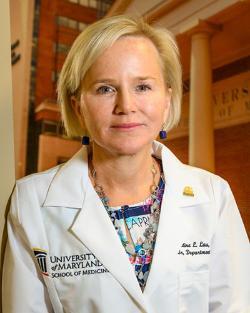 Muhammad M. Mohiuddin, MD, Professor of Surgery and Scientific/Program Director of the Cardiac Xenotransplantation Program at UMSOM, added, “We cannot express enough gratitude to Mr. Faucette and his family for enabling us to continue to make significant advancements towards making xenotransplants a reality. Mr. Faucette was a scientist who not only read and interpreted his own biopsies but who understood the important contribution he was making in advancing this field. As with the first patient, David Bennett, Sr., we intend to conduct an extensive analysis to identify factors that can be prevented in future transplants; this will allow us to continue to move forward and educate our colleagues in the field on our experience.”
Muhammad M. Mohiuddin, MD, Professor of Surgery and Scientific/Program Director of the Cardiac Xenotransplantation Program at UMSOM, added, “We cannot express enough gratitude to Mr. Faucette and his family for enabling us to continue to make significant advancements towards making xenotransplants a reality. Mr. Faucette was a scientist who not only read and interpreted his own biopsies but who understood the important contribution he was making in advancing this field. As with the first patient, David Bennett, Sr., we intend to conduct an extensive analysis to identify factors that can be prevented in future transplants; this will allow us to continue to move forward and educate our colleagues in the field on our experience.”
Mr. Faucette first came to the University of Maryland Medical Center as a patient on Thursday, September 14. When he came into the hospital, he was in end-stage heart failure. Shortly before the surgery, his heart stopped and required resuscitation.
He was deemed ineligible for a traditional heart transplant due to his advanced medical conditions including peripheral vascular disease. On September 15, the US Food and Drug Administration granted an emergency authorization for the surgery in the hope of extending his life.
Following surgery, the transplanted heart performed very well without any evidence of rejection during the first month of recovery. Mr. Faucette was engaged in physical therapy and was working toward regaining his ability to walk.
“This is a monumental achievement, and it takes Herculean efforts to move the transplant field forward,” said Christine Lau, MD, MBA, the Dr. Robert W. Buxton Professor and Chair of the Department of Surgery at UMSOM and Surgeon-in-Chief at UMMC. “Lung transplants took decades to perfect, and the giants of those days carried a lot on their shoulders. Drs. Griffith, Mohiuddin and their entire treatment team, as well as Mr. Faucette and his family, are our heroes of today.”
Statement from the patient’s wife, Ann Faucette
Larry started this journey with an open mind and complete confidence in Dr. Griffith and his staff. He knew his time with us was short, and this was his last chance to do for others. He never imagined he would survive as long as he did, or provide as much data to the xenotransplant program. He was a man who was always thinking of others, especially myself and his two sons. The kindness and selfless acts of others were not unnoticed. Larry was consistently telling the nurses, support staff, and doctors how much he appreciated what they were doing for him. He was not only thinking about how this journey was helping to advance the xenotransplant program, but how it affected his family. An example is his last night when he was lying in the bed contemplating the end and worrying about his sister and if she had slept yet. Larry's family continues to be in awe of the man that he was and how he has shaped our lives. He can never be forgotten.
The family thanks the staff at the University of Maryland Medical Center for the care given to Larry and the support given to family members through their many days.
Larry's family would also like to thank David Bennett, Sr.’s, family for having the courage to be number one and the support they provided to us. We look forward to advancement and success in the field of xenotransplantation.
Resources for the Media:
Photos, Surgery Video, Patient & Surgeon Interviews.
Please download video and images to your computer before viewing them.
Contact
Deborah Kotz
Senior Director of Media Relations
Office of Public Affairs & Communications
University of Maryland School of Medicine
Email: DKotz@som.umaryland.edu
o: 410-706-4255
c: 410-804-0054
t: @debkotz2
Related stories
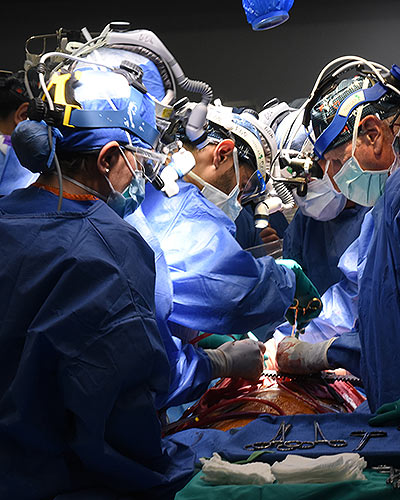
Wednesday, January 08, 2025
Presenting a Path Forward for Future Genetically-Modified Pig Heart Transplants: Lessons Learned from Second Patient
Continuing significant advancements in the field of xenotransplantation, surgeon-scientists from the University of Maryland School of Medicine provided an extensive analysis on the second patient in the world to receive a genetically-modified pig organ. Lawrence Faucette, 58, received a pig heart at the University of Maryland Medical Center in 2023 to treat his end-stage heart failure. He lived for 40 days before choosing to forgo additional treatment after the transplant began to fail due to rejection.
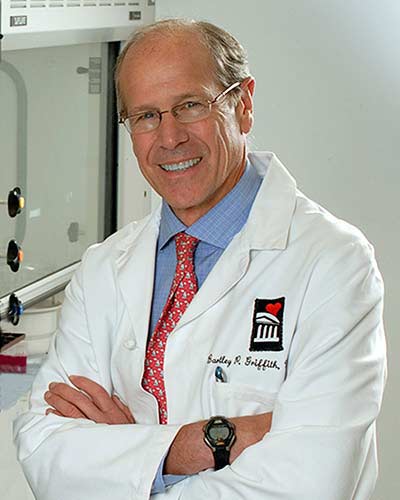
Wednesday, January 31, 2024
Renowned Surgeon Dr. Bartley Griffith Named Vice Chair for Innovation in UM School of Medicine’s Department of Surgery
University of Maryland School of Medicine (UMSOM) Department of Surgery Chair Christine Lau, MD, MBA, along with UMSOM Dean Mark T. Gladwin, MD, announced today the appointment of Bartley P. Griffith, MD, as the Department of Surgery’s first Vice Chair for Innovation. In this role, Dr. Griffith will nurture a culture of innovation, entrepreneurship, and collaboration in the Department, and expand the integration of related sciences into surgical practice. The appointment is effective on February 1.

Friday, September 22, 2023
UM Medicine Faculty-Scientists and Clinicians Perform Second Historic Transplant of Pig Heart into Patient with End-Stage Cardiovascular Disease
A 58-year-old patient with terminal heart disease became the second patient in the world to receive a historic transplant of a genetically-modified pig heart on September 20. He is recovering and communicating with his loved ones. This is only the second time in the world that a genetically modified pig heart has been transplanted into a living patient. Both historic surgeries were performed by University of Maryland School of Medicine (UMSOM) faculty at the University of Maryland Medical Center (UMMC).
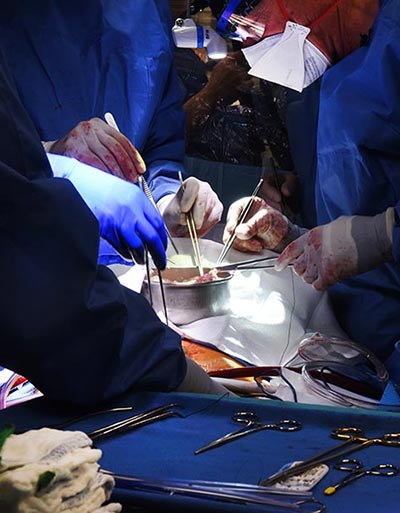
Friday, June 30, 2023
Lessons Learned from World’s First Successful Transplant of Genetically-Modified Pig Heart into Human Patient
A new study published today in the Lancet has revealed the most extensive analysis to date on what led to the eventual heart failure in the world's first successful transplant of a genetically-modified pig heart into a human patient. This groundbreaking procedure was conducted by University of Maryland School of Medicine (UMSOM) physician-scientists back in January 2022 and marked an important milestone for medical science.
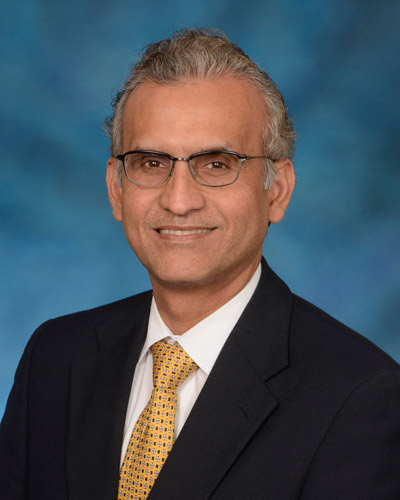
Friday, December 16, 2022
UM School of Medicine Surgeon-Scientist Named One of Nature’s 10 People Who Helped Shape the Science Stories of 2022
The world-renowned journal Nature, named Muhammad Mohiuddin, MD, DSc, Program and Scientific Director of the Cardiac Xenotransplantation Program at the University of Maryland School of Medicine (UMSOM), on its annual list of 10 people who helped shaped science in 2022. His pivotal work over the past three decades transplanting genetically-modified pig hearts into non-human primates led to the historic xenotransplant of a pig heart into a human patient this past January. The surgery was led by Bartley Griffith, MD, the Thomas E. and Alice Marie Hales Distinguished Professor of Transplant Surgery and Clinical Director of the Cardiac Xenotransplantation Program, who was also recognized by Nature for his ground-breaking efforts to move the field of transplantation into a new era.

Monday, November 14, 2022
Unexpected Electrical Changes Seen in First Successful Transplant of Genetically-Modified Pig Heart
Ten months after transplanting the first genetically-modified pig heart into a human patient, University of Maryland School of Medicine (UMSOM) researchers continue to report on new findings from the landmark transplant. Their latest study demonstrates for the first time that unexpected electrical changes occurred in the pig heart transplanted into the patient David Bennett. The findings were presented at the American Heart Association (AHA) meeting this past weekend.
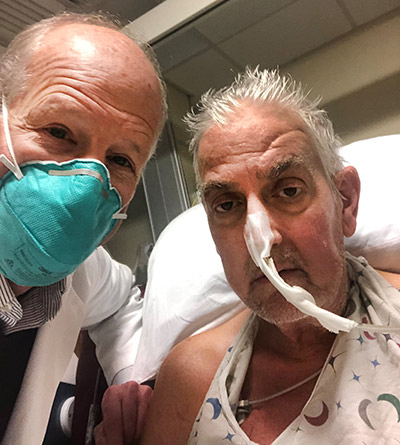
Wednesday, June 22, 2022
University of Maryland School of Medicine Faculty Scientists and Clinicians Publish Findings of World’s First Successful Transplant of Genetically Modified Pig Heart into Human Patient
Six months ago, University of Maryland School of Medicine surgeon-scientists successfully implanted a genetically modified pig heart into a 57 year-old patient with terminal heart disease in a first-of-its-kind surgery. It was considered an early success because the patient lived for two months with a strong functioning heart showing no obvious signs of rejection, according to a new paper published today in the New England Journal of Medicine.
